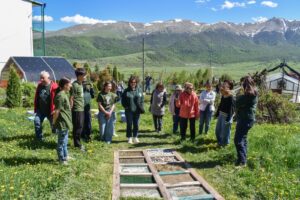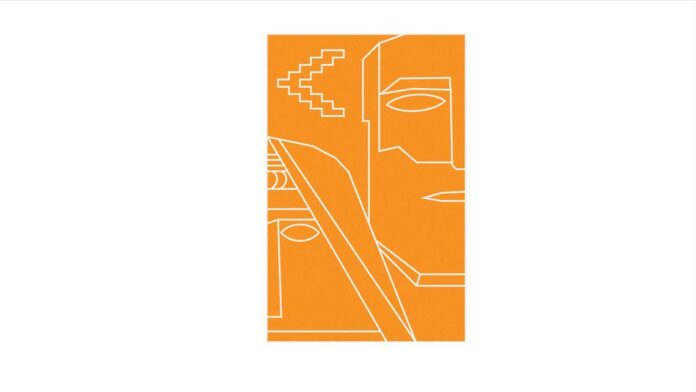Editorial Note: A conference called Republic of Artsakh: The Imperative of International Recognition took place on February 24-25 at Yerevan’s Mesrop Mashtots Matenadaran [Repository of Manuscripts], with the participation of many scholars, diplomats, political figures and historians. Such events often are labeled as pro- or anti-government in today’s polarized atmosphere in Armenia, but it is important that all sectors of the Armenian people, in Armenia, Artsakh and the diaspora, unite forces to escape the current impasse. For this reason, it is important to continue such public discussions and analyses, even if sometimes they may be used by some forces for political purposes. Below, we are reproducing without comment the statement of the organizing body of the conference as its conclusion to the nearly twenty varied speeches, panel discussions, and exchanges conducted.
We, the co-organizers of the conference Republic of Artsakh: The Imperative of International Recognition held in Yerevan on February 24 and 25, 2023, with the blessing of the Mother See of Holy Echmiadzin, based on the ideas, arguments and scientific justifications stemming from the academic speeches and remarks presented at the conference, underscore the following:
- Artsakh has never been part of independent Azerbaijan; moreover, the Republic of Artsakh is an established state itself. Historically, Nagorno-Karabakh has been an Armenian territory for thousands of years, and in 1918-1920, when Azerbaijan first put forward its claims on the territories of Nagorno-Karabakh, in all international reports Nagorno-Karabakh was explicitly recognized as a territory inhabited by Armenians. Only after the establishment of the Soviet regime and within its internal administrative territorial division, was it annexed to Soviet Azerbaijan while still continuing to enjoy the status of an autonomous region. The Soviet legislation underlying the renewed autonomy of Artsakh also corresponded to the norms of international law, providing an equal right of self-determination to people living in Soviet Union. The factual basis for the independence of Artsakh was not only the ethnic, territorial, socio-cultural, economic, historical autonomy of Artsakh, but first and foremost, the existential necessity of its people to avoid genocide and ethnic cleansing by Azerbaijan. The international community has never expressed any explicit legal or political position that Artsakh should be incorporated back to Azerbaijan, and in 2007 the co-chairs of the Organization for Security and Cooperation in Europe (OSCE) Minsk Group came up with a proposal, which in 2009 was adopted by Armenia and Azerbaijan as the Madrid principles and as a basis for negotiations, whereupon alongside with the principle of territorial integrity, the people’s right for self-determination was established as the basis for negotiated final solution. The international legal foundations of the establishment of the Republic of Artsakh are thus indisputable, and any retreat from them is impermissible.
- Considering the issue of Artsakh outside the package of existential concerns of Armenia is not permissible. Recognizing Artsakh as part of Azerbaijan, enforcing it with any legal document, and disowning the struggle for the realization of Artsakh people’s right to self-determination will not only fail to guarantee the territorial integrity of the Republic of Armenia and the physical safety of its population, but on the contrary, it will become another tragic milestone turning irreversible the demolition of Armenian statehood and the genocide of the Armenian people, as Azerbaijan never hided its genocidal aspirations not only towards Artsakh people, but also towards the Republic of Armenia, by means of hateful actions and likewise rhetoric periodically rejecting the right of the Armenian people to live in their own historical homeland.
- The political and diplomatic mechanisms and opportunities for the international recognition of the Republic of Artsakh are by no means exhausted. From a legal and political point of view, the claims spread by the government’s propaganda machine that allegedly back to December 21, 1991, Armenia recognized the territorial integrity of Azerbaijan through the Alma-Ata Declaration, including Artsakh as part of the latter, are totally misguided. Likewise, false and groundless are the claims that the international community sees Artsakh as part of Azerbaijan. The international community is not prompting us to sign such a “peace treaty” with Azerbaijan, which will be followed by Azerbaijan’s new aggression, groundless territorial claims, and large-scale reparations, the price of which will be paid by the people of Armenia, and which will result in the loss of sovereignty and the eventual destruction of the Republic of Armenia. Although the Co-chair states of the Minsk Group have serious geopolitical disagreements, they still maintain a balanced position based on the general principles of international law regarding the settlement of the Nagorno-Karabakh issue, and all three Co-chair states expressed a clear position after the 44-day war in 2020 that the issue concerning the status of Artsakh is not closed. The statements of many states and international organizations regarding the blockade of the Lachin Corridor also prove that it is conceivable for the international community that the self-determination of Artsakh is not a matter of separatism at all. Besides, it differs from other initiatives of self-determination arising from time to time in various civilized countries, as it provides the only realistic way of physical survival and the prevention of another genocide in the Republic of Artsakh. All the negotiation preconditions forwarded by the Republic of Armenia (de-occupation of Shushi and Hadrut, other territories of the Artsakh Republic, return of refugees, restoration of the existing mediation format or creation of a new one, fulfillment of obligations assumed by Azerbaijan in the statement of November 9, 2020, etc.) will be acceptable for the major international actors, which in its turn, will neutralize Azerbaijan’s ambitions to conclude the negotiation process with a new act of capitulation.
In addition, the Republic of Armenia can take Azerbaijan to international courts for military, genocidal and other hate crimes against humanity, thereby strengthening its negotiating position. The Armenian diaspora still has significant unrealized lobbying opportunities, whereas the direction of the current Armenian authorities contradicts the continuous logic of the of the Armenian diaspora’s activities, and deprives them of the necessary effectiveness, as well as creates a confusion in foreign diplomatic decision-making centers in understanding the unified Armenian position.
- It is the constitutional duty of the Armenian authorities to support the international recognition of the Artsakh Republic, with a perspective of eventual reunification with the Republic of Armenia. It derives from the Republic of Armenia’s Declaration of Independence and its Constitution. The renouncement of this constitutional duty is not only illegal, but also a betrayal of the vital interests of the Armenian people and will inevitably lead to legal and political responsibility.
- The struggle for the international recognition of the Republic of Artsakh is the key mission of the Armenian people. A new life must be breathed into this struggle. That struggle must be removed from the logic of internal political contradictions and geopolitical preferences. The indifference shown today by a significant part of the young generation towards the fate of Artsakh must be overturned as well and must be directly linked with the imperative of civic responsibility and that of having a viable homeland. Both the co-organizers and all the organizations sharing their ideas have a direct responsibility to restore the willpower of our youth to bring the national liberation struggle to its logical conclusion thus undertaking to do their utmost to involve our youth in that struggle.
Based on the above:
- We are determined to use all available means to deter the current authorities of the Republic of Armenia from the illegal and destructive policy pursued in the Artsakh issue,
- We request the current authorities of the Republic of Armenia to refrain explicitly from signing any document which would recognize Artsakh as part of Azerbaijan.
- In this respect, we expect the support of all our compatriots and organizations concerned with the fate of our homeland, and we call on all public and political forces of Armenia, Artsakh and the Armenian diaspora to form a unified front around the agenda of international recognition of the Republic of Artsakh.
Consolidation Movement
5165 Movement








